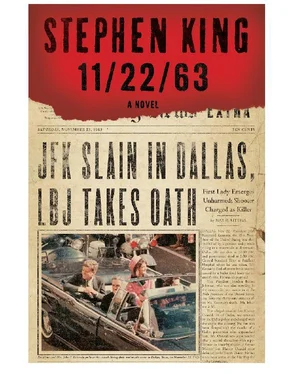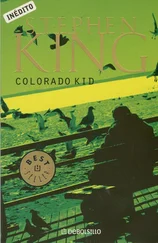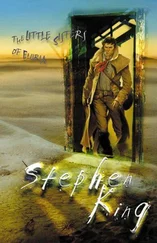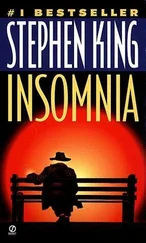Stephen King - 11/22/63 - A Novel
Здесь есть возможность читать онлайн «Stephen King - 11/22/63 - A Novel» весь текст электронной книги совершенно бесплатно (целиком полную версию без сокращений). В некоторых случаях можно слушать аудио, скачать через торрент в формате fb2 и присутствует краткое содержание. Жанр: Альтернативная история, Триллер, на английском языке. Описание произведения, (предисловие) а так же отзывы посетителей доступны на портале библиотеки ЛибКат.
- Название:11/22/63: A Novel
- Автор:
- Жанр:
- Год:неизвестен
- ISBN:нет данных
- Рейтинг книги:4 / 5. Голосов: 2
-
Избранное:Добавить в избранное
- Отзывы:
-
Ваша оценка:
- 80
- 1
- 2
- 3
- 4
- 5
11/22/63: A Novel: краткое содержание, описание и аннотация
Предлагаем к чтению аннотацию, описание, краткое содержание или предисловие (зависит от того, что написал сам автор книги «11/22/63: A Novel»). Если вы не нашли необходимую информацию о книге — напишите в комментариях, мы постараемся отыскать её.
11/22/63: A Novel — читать онлайн бесплатно полную книгу (весь текст) целиком
Ниже представлен текст книги, разбитый по страницам. Система сохранения места последней прочитанной страницы, позволяет с удобством читать онлайн бесплатно книгу «11/22/63: A Novel», без необходимости каждый раз заново искать на чём Вы остановились. Поставьте закладку, и сможете в любой момент перейти на страницу, на которой закончили чтение.
Интервал:
Закладка:
“You lived it, Harry. So tell me.”
“I don’t mind,” he said. “Drag up a rock, son. Quit lookin at those pictures. If you don’t know Kennedy got reelected in ’64, you’re sure not apt to know any of my family.”
Ah, Harry, I thought.
3
When I was just a little kid-four, maybe even three-a drunk uncle told me the story of “Little Red Riding Hood.” Not the one in the standard fairy-tale books, but the R-rated version, full of screams, blood, and the dull thump of the woodsman’s axe. My memory of hearing it is vivid to this day, but only a few of the details remain: the wolf’s teeth bared in a shining grin, for instance, and the gore-soaked granny being reborn from the wolf’s yawning belly. This is my way of saying that if you’re expecting The Concise Alternate History of the World as told by Harry Dunning to Jake Epping, forget about it. It wasn’t just the horror of discovering how badly things had gone wrong. It was my need to get back and put things right.
Yet a few things stand out. The worldwide search for George Amberson, for instance. No joy there-George was as gone as Judge Crater-but in the forty-eight years since the assassination attempt in Dallas, Amberson had become a near-mythical figure. Savior, or part of the plot? People held actual conventions to discuss it, and listening to Harry tell that part, it was impossible for me not to think of all the conspiracy theories that had sprung up around the version of Lee who had succeeded. As we know, class, the past harmonizes.
Kennedy expected to sweep Barry Goldwater away in a landslide in ’64; instead he won by less than forty electoral votes, a margin only Democratic Party stalwarts thought respectable. Early in his second term, he infuriated both the right-wing voters and the military establishment by declaring North Vietnam “less a danger to our democracy than the racial inequality in our schools and cities.” He didn’t withdraw American troops entirely, but they were restricted to Saigon and a ring around it that was called-surprise, surprise-the Green Zone. Instead of injecting large numbers of troops, the second Kennedy administration injected large amounts of money. It’s the American Way.
The great civil rights reforms of the sixties never happened. Kennedy was no LBJ, and as vice president, Johnson was uniquely powerless to help him. The Republicans and Dixiecrats filibustered for a hundred and ten days; one actually died on the floor and became a right-wing hero. When Kennedy finally gave up, he made an off-the-cuff remark that would haunt him until he died in 1983: “White America has filled its house with kindling; now it will burn.”
The race riots came next. While Kennedy was preoccupied with them, the North Vietnamese armies overran Saigon-and the man who’d gotten me into this was paralyzed in a helicopter crash on the deck of a U.S. aircraft carrier. Public opinion began to swing heavily against JFK.
A month after the fall of Saigon, Martin Luther King was assassinated in Chicago. The assassin turned out to be a rogue FBI agent named Dwight Holly. Before being killed himself, he claimed to have carried out the hit on Hoover’s orders. Chicago went up in flames. So did a dozen other American cities.
George Wallace was elected president. By then the earthquakes had begun in earnest. Wallace couldn’t do anything about those, so he settled for firebombing Chicago into submission. That, Harry said, was in June of 1969. A year later, President Wallace offered Ho Chi Minh an ultimatum: make Saigon a free city like Berlin or see Hanoi become a dead one, like Hiroshima. Uncle Ho refused. If he thought Wallace was bluffing, he was wrong. Hanoi became a radioactive cloud on August ninth, 1969, twenty-four years to the day after Harry Truman dropped Fat Man on Nagasaki. Vice President Curtis LeMay took personal charge of the mission. In a speech to the nation, Wallace called it God’s will. Most Americans concurred. Wallace’s approval ratings were high, but there was at least one fellow who did not approve. His name was Arthur Bremer, and on May fifteenth, 1972, he shot Wallace dead as Wallace campaigned for reelection at a shopping mall in Laurel, Maryland.
“With what kind of gun?”
“I believe it was a. 38 revolver.”
Sure it was. Maybe a Police Special, but probably a Victory model, the same kind of gun that had taken Officer Tippit’s life along another time-string.
This was where I began to lose the thread. Where the thought I have to put this right, put this right, put this right began to hammer in my head like a gong.
Hubert Humphrey became president in ’72. The earthquakes worsened. The world suicide rate skyrocketed. Fundamentalism of all kinds blossomed. The terrorism fomented by religious extremists blossomed with it. India and Pakistan went to war; more mushroom clouds bloomed. Bombay never became Mumbai. What it became was radioactive ash in a cancer-wind.
Likewise, Karachi. Only when Russia, China, and the United States promised to bomb both countries back to the Stone Age did the hostilities cease.
In 1976, Humphrey lost to Ronald Reagan in a coast-to-coast landslide; The Hump couldn’t hold even his native state of Minnesota.
Two thousand committed mass suicide in Jonestown, Guyana.
In November of 1979, Iranian students overran the American embassy in Tehran and took not sixty-six hostages but over two hundred. Heads rolled on Iranian TV. Reagan had learned enough from Hanoi Hell to keep the nukes in their bomb bays and missile silos, but he sent in beaucoup troops. The remaining hostages were, of course, slaughtered, and an emerging terrorist group calling themselves The Base-or, in Arabic, Al-Qaeda-began planting roadside bombs here, there, and everywhere.
“The man could speechify like a motherfucker, but he had no understanding of militant Islam,” Harry said.
The Beatles reunited and played a Peace Concert. A suicide bomber in the crowd detonated his vest and killed three hundred spectators. Paul McCartney was blinded.
The Mideast went up in flames shortly thereafter.
Russia collapsed.
Some group-probably exiled Russian hard-line fanatics-began selling nuclear weapons to terrorist groups, including The Base.
“By 1994,” Harry said in his dry voice, “the oil fields over there were so much black glass. The kind that glows in the dark. Since then, though, the terrorism has kind of burned itself out. Someone blew up a suitcase nuke in Miami two years ago, but it didn’t work very well. I mean, it’ll be sixty or eighty years before anybody can party on South Beach-and of course the Gulf of Mexico is basically dead soup-but only ten thousand people have died of radiation poisoning. By then it wasn’t our problem. Maine voted to become a part of Canada, and President Clinton was happy to say good riddance.”
“Bill Clinton’s president?”
“Gosh, no. He was a shoo-in for the ’04 nomination, but he died of a heart attack at the convention. His wife stepped in. She’s president.”
“Doing a good job?”
Harry waggled his hand. “Not bad… but you can’t legislate earthquakes. And that’s what’s going to do for us, in the end.”
Overhead, that watery ripping sound came again. I looked up. Harry didn’t.
“What is that?” I asked.
“Son,” he said, “nobody seems to know. The scientists argue, but in this case I think the preachers might have the straight of it. They say it’s God getting ready to tear down all the works of His hands, same way that Samson tore down the Temple of the Philistines.” He drank the rest of his whisky. Thin color had bloomed in his cheeks.. . which were, as far as I could see, free of radiation sores. “And on that one, I think they might be right.”
Читать дальшеИнтервал:
Закладка:
Похожие книги на «11/22/63: A Novel»
Представляем Вашему вниманию похожие книги на «11/22/63: A Novel» списком для выбора. Мы отобрали схожую по названию и смыслу литературу в надежде предоставить читателям больше вариантов отыскать новые, интересные, ещё непрочитанные произведения.
Обсуждение, отзывы о книге «11/22/63: A Novel» и просто собственные мнения читателей. Оставьте ваши комментарии, напишите, что Вы думаете о произведении, его смысле или главных героях. Укажите что конкретно понравилось, а что нет, и почему Вы так считаете.












